Gaza Refugee Camp Hit By Second Israeli Airstrike In Two Days, Escalating Outcry
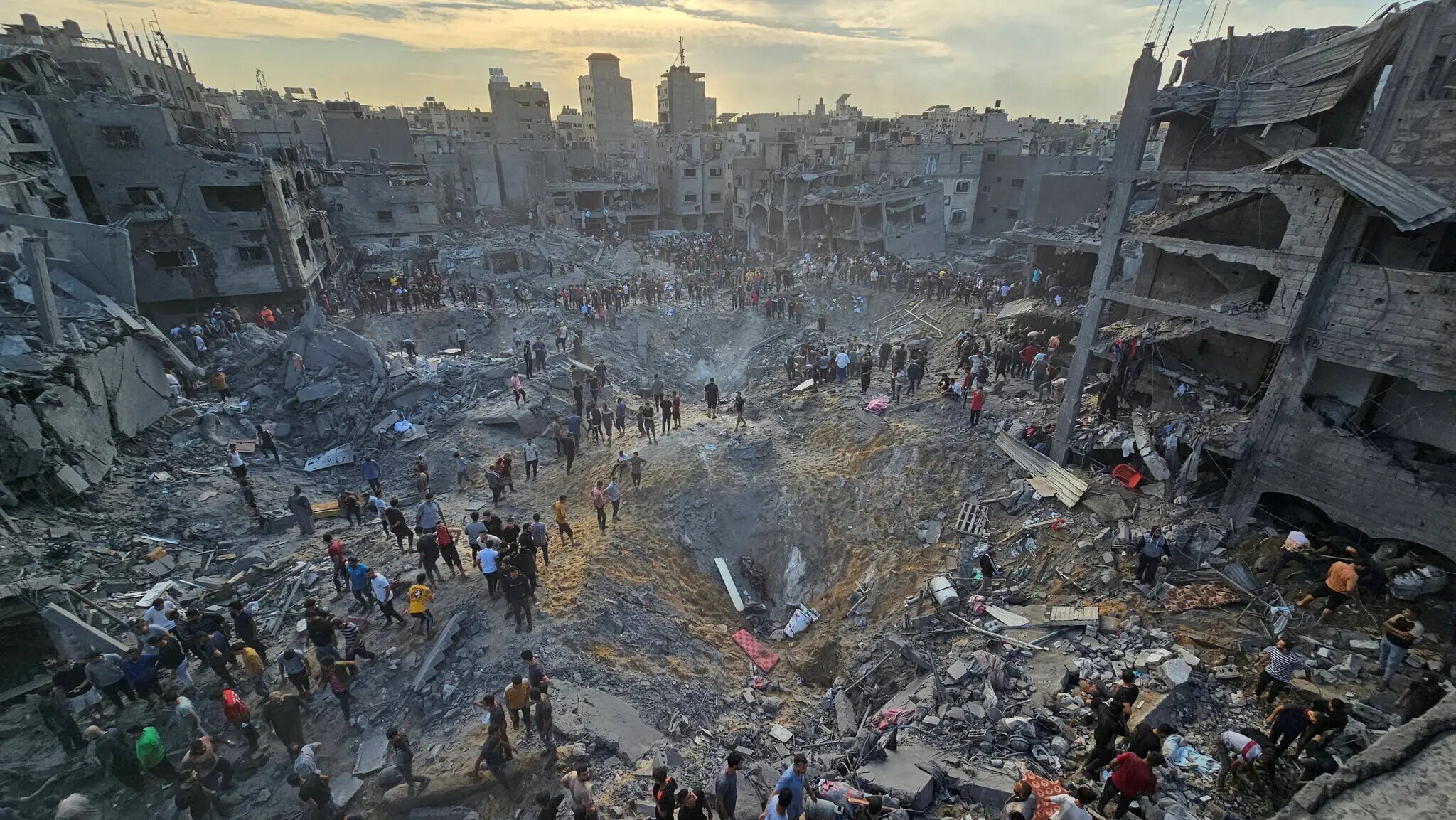
- The Palestinian Ministry of Health in Ramallah says that nearly half of all hospitals in Gaza are closed because of attacks and a lack of fuel.
- There were more than 360 people with passports from other countries, and many of them were Palestinians who also lived in other countries.
Israel bombed the heavily populated Jabalya refugee camp in northern Gaza for the second time in two days on Wednesday. This led to accusations of war crimes and more countries condemning Israel’s attack in the besieged area.
The area around the Al Quds hospital in Gaza City was also hit by Israeli airstrikes. The hospital’s head says that up to 14,000 displaced people are staying there. Starting on Wednesday night and going through Thursday morning, the strikes were “getting closer to the hospital.”
Thursday is the day that more civilians are expected to leave Gaza. The day before, hundreds of foreigners and hurt Palestinians crossed the Rafah border into Egypt in the first official exodus in weeks.
Wael Abu Umar, a Palestinian official at the Rafah gate, said that 400 foreigners were planning to leave, but he did not say what countries they were from. Another 60 people were hurt. Six Americans who went across the border on Thursday.
The Ministry of Foreign Affairs of Egypt said in a statement that the country is getting ready to help nearly 7,000 foreigners in Gaza from more than 60 countries leave through the Rafah Crossing.
The second, much stronger attack on Jabalya did even more terrible damage, destroying several houses in the Falluja neighborhood of the camp. Video from the scene shows a deep crater and people searching through the rubble for bodies.
In Gaza, which is run by Hamas, the Civil Defense called the attack a “second massacre.” Dr. Atef Al Kahlout, who runs Gaza’s Indonesian hospital, says the explosion killed at least 80 people and hurt hundreds more. More bodies were being found in the wreckage. Most of the people who died were women and children.
According to the Israel Defense Forces (IDF), the attack on Wednesday was aimed at a Hamas command and control center and “eliminated” Hamas terrorists “based on precise intelligence.”
“Hamas builds its terror infrastructure under, around, and inside civilian buildings on purpose, putting Gazan civilians in danger,” the IDF said in a statement.
The airstrike happened a day after Israeli jets hit the camp in an area near Falluja on Tuesday, doctors say. The attack killed or hurt hundreds of people and caused more outrage over the rising number of civilian deaths in Gaza.
Survivors and onlookers said that the scenes after Tuesday’s attack were like the end of the world. One witness said, “It felt like the end of the world.”
“Kids were running and carrying other hurt kids. There was gray dust in the air.” Body parts were hanging from the rubble, and many of them were hard to identify. Some were hurt and bleeding, and others were on fire.
One of the Hamas leaders blamed for the October 7 attack on Israel, in which more than 1,400 people were killed and hundreds were taken hostage, was Ibrahim Biari, who was killed in the first strike, according to the IDF. Hamas, on the other hand, strongly rejected that one of its leaders was in the refugee camp.
The UN Human Rights Office said on social media that the attacks on Jabalya, which is Gaza’s biggest refugee camp, “could amount to war crimes” because of “the high number of civilian casualties and the scale of the destruction.”
At least 8,700 people have died because Israel has been bombing Gaza for weeks, according to numbers provided by the Palestinian Ministry of Health in Ramallah. These numbers come from sources in the Hamas-controlled area. Every day, that’s more than 300 people who die. They said on Monday that more than 70% of those killed were women, children, and older people.
The strikes, which are part of Israel’s larger offensive in Gaza, caused a lot of damage. For many countries, it seemed like the war was about to start, so they took political action to condemn Israel’s actions in Gaza and the humanitarian crisis that followed.
Chile and Colombia had already called back their ambassadors to Israel because of the attacks on Gaza. On Wednesday, Jordan did the same. On Tuesday, Bolivia severed its ties with Israel, saying that Israel had committed “crimes against humanity against the Palestinian people.”
The strikes are still going on even though the UN and aid groups are asking for a ceasefire more and more urgently and even though over 100 countries backed a non-binding UN General Assembly resolution calling for a “sustained humanitarian truce.”
New strikes, a hospital goes dark
A live camera feed from AFP showed a lot of new explosions over Gaza City early Thursday morning. Gaza City is the biggest city in the enclave.
Brigadier General Itzik Cohen, the head of the IDF, said on Wednesday that the Israeli force is “at the gates of Gaza City.” And Rear Adm. Daniel Hagari, a spokesman for the IDF, said that Israeli troops had broken through Hamas’ defensive line in northern Gaza and are now fighting all the way into the strip.
The IDF reported on Thursday the death of a soldier who was killed during the invasion of Gaza. This brings the total number of Israeli soldiers killed in the operation to 18.
The tragedy for the more than 2 million people, half of whom are children, trapped inside the war-torn enclave is “unprecedented,” the head of the UN office for Palestinian refugees said Wednesday after a short trip to Gaza.
“Everyone only wanted food and water.” Kids weren’t learning at school; instead, they were asking for a drink of water and a piece of bread. That broke my heart. The main thing people wanted was for the fighting to stop. The head of the UN Relief and Works Agency for Palestine Refugees (UNRWA), Philippe Lazzarini, said, “They want this tragedy to end.”
The Palestinian Ministry of Health in Ramallah says that nearly half of all hospitals in Gaza are closed because of attacks and a lack of fuel. This includes the main cancer hospital in the strip. The biggest hospital in Gaza, Al Shifa, was told it would have to close in less than a day.
In the meantime, the main generator for the Gaza Indonesian Hospital stopped working Wednesday night. The hospital is one of the few that still serves the northern part of the coastal territory, and Dr. Atef Al Kahlout, the head of the hospital, said this made people even more worried about the patients who are in intensive care. The hospital is an important part of health care in northern Gaza, and Al Kahlout said that the power outage has damaged the operating rooms’ ventilation systems, the hospital’s only oxygen station, and the refrigerators in the morgue.
On Wednesday, hundreds of foreigners and hurt Palestinians began crossing from Gaza into Egypt through the Rafah border gate.
There were more than 360 people with passports from other countries, and many of them were Palestinians who also lived in other countries. Dozens of them were going to Cairo, where some of them would catch flights back to their home countries.
One of the people who crossed into Egypt on Wednesday was Ramona Okumura, an American volunteer doctor who lives in Seattle and was working with disabled children in Gaza. Leah Okumura, her niece, told Ramona that she was now taking a break at a hotel.
An Egyptian government 45 hurt Palestinians are also getting care in three hospitals across the country. They are on a list of 81 seriously hurt people who are going to Egypt to get medical care.
Eleven relief aid trucks from the Egyptian Red Crescent crossed into Gaza on Wednesday. They were carrying food, water, medicine, and medical supplies. It said that so far, only 272 relief trucks have been able to get into Gaza, which is a very small amount of the help that is needed. However, no fuel has been allowed to get in.


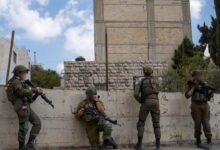
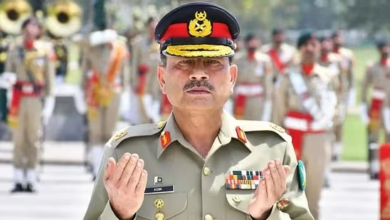
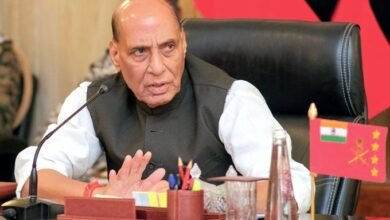
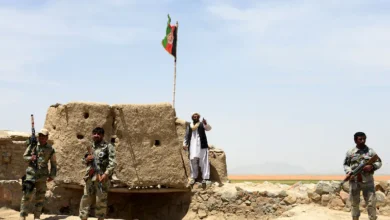
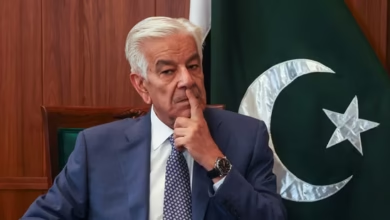
Facebook Comments